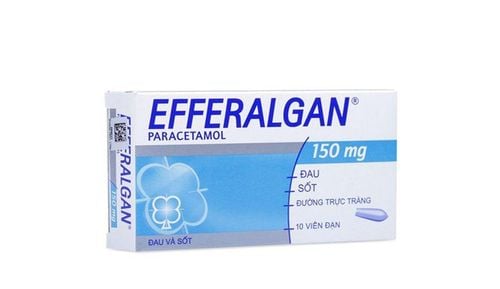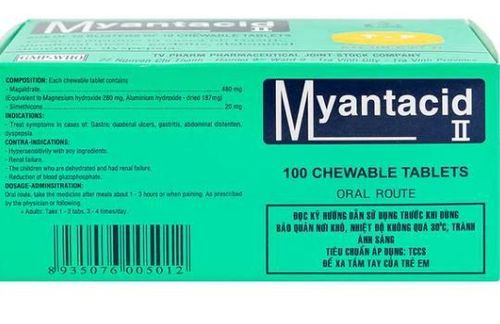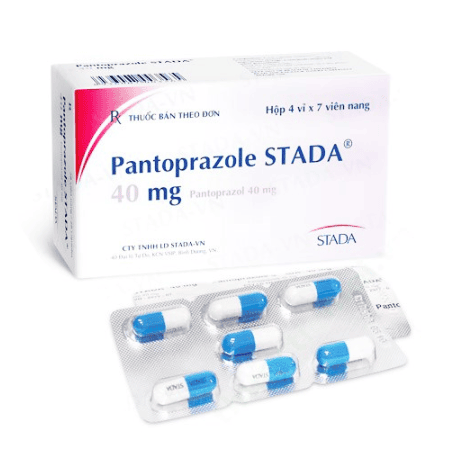This is an automatically translated article.
Diet for children with stomach ulcers needs to ensure hygiene and nutritional quality. A reasonable diet not only plays an important role in the treatment of diseases but also helps the child's digestive tract to be healthy and develop well both physically and intellectually.
1. What are the symptoms of peptic ulcer disease in children?
Peptic ulcer in children causes damage and ulceration of the gastric mucosa - duodenum, damage occurs when the lining of the stomach and duodenum is eroded, causing the following symptoms in children:
Intermittent abdominal pain, epigastric pain, pain often associated with meals; Nausea, vomiting, bloating, indigestion; belching, heartburn, heartburn and burning in the epigastrium; Loss of appetite, digestive disorders such as diarrhea or constipation.
2. The role of proper nutrition in children with stomach ulcers
Peptic ulcer disease in children is often caused by bacteria Helicobacter Pylori (HP). This type of bacteria is transmitted through the digestive tract, so the diet is not hygienic such as not washing hands before eating, chopsticks and dishes have not been washed, picking up food for children, feeding children food Eating at an unhygienic restaurant... will increase the risk of HP infection. Therefore, a reasonable and hygienic diet is the first measure to help prevent the risk of HP infection as well as reduce the risk of peptic ulcer disease.
Besides, proper nutrition also plays an important role in the treatment and recovery process for patients. The specific role of the diet is as follows:
A reasonable diet helps protect the stomach lining, helping the stomach to rest; Neutralize gastric acid and reduce gastric acid secretion; Facilitating the recovery of the gastric mucosa - duodenum, taking care of gastrointestinal function, helping the site of injury, ulcers heal quickly and avoid recurrence; Preventing the risk of malnutrition in children.

Bệnh viêm loét dạ dày ở trẻ em xảy ra khi lớp niêm mạc của dạ dày và tá tràng bị bào mòn
3. Diet for children with stomach ulcers
Diet for children with stomach ulcers needs to ensure hygiene and nutritional quality. A reasonable diet not only plays an important role in the treatment of diseases but also helps the child's digestive tract to be healthy, the child to develop well both physically and intellectually.
Types of foods parents need to pay attention to supplementing for children are as follows:
Parents should supplement their children with fats from fish because they contain many essential fatty acids and energy for the body; Supplementing with protein derived from meat (chicken, lean pork), milk, eggs... Foods rich in zinc such as oysters, oysters, meat, fish... help wounds heal quickly; Supplement vitamins through vegetables and fruits in the daily diet: sweet potatoes, potatoes contain a lot of vitamin C and beta - carotene; Carrots, cod liver oil contain a lot of vitamin A ... One of the diets for children with stomach ulcers is to use soft green vegetables, young leaves such as spinach, jute vegetables, amaranth... In the case of a young child, the mother should breastfeed the child and divide it into several feedings a day; In addition, parents should limit foods that can aggravate the child's medical condition as follows:
Peptic ulcer in children should not eat foods containing high protein content, lots of animal fat... hard to digest and make children uncomfortable; Food that is hard and takes a long time to digest, such as meat containing many tendons, water spinach, pumpkin, etc., can easily damage the stomach lining; Limit foods that increase gastric acid secretion such as sour foods (batch, vinegar); sour fruits (lemon, tangerine, mango, star fruit)... Limit foods that cause bloating such as celery, chives, pickled cucumber, bean sprouts... Limit carbonated drinks, foods Ready-made and canned foods such as sausages, canned meats... Besides choosing food, the notes when preparing food also play an important role in the diet for children with stomach ulcers. Accordingly, parents need to pay attention to a number of issues as follows:
Food should be finely chopped, thoroughly cooked and soft. Parents can cook by braising, steaming or boiling to make it easier for children to digest and absorb fried and fried foods; Parents should guide children to eat slowly, chew well, avoid eating while playing, watching movies, etc. to help children increase saliva secretion and digest easier; Divide into many small meals, the interval between meals is not too long to help the stomach always have food to neutralize gastric acid, reduce stomach pain; Parents do not let the child be too hungry because it will increase stomach contractions leading to pain, even stomach bleeding. Note not to let the child eat too full, causing the stomach to stretch too much, reducing the ability to contract and affecting the process of mixing and digesting food; Food should not be processed too thick, making it difficult for gastric juices to penetrate the food and should not be processed too loosely and with a lot of water because it will dilute the gastric juice, leading to a decrease in digestibility; Food should not be too hot or too cold because it will make the stomach contract harder and cause pain. Food temperature between 40 - 50oC is good for digestion and absorption.

Viêm loét dạ dày tá tràng ở trẻ em nên có chế độ ăn bổ sung vitamin thông qua các loại rau củ quả
In the case of a stable child's peptic ulcer disease, parents should still maintain a supplementary diet for the child with 2-3 snacks between main meals, ensuring a regular diet, do not skip meals, do not starve, combined with personal hygiene and adequate eating and drinking hygiene to avoid the risk of HP infection. Besides, parents should avoid letting children under pressure, stress or tension, especially exam pressure. In the course of drug treatment, parents need to mention the drugs the child is allergic to, the medical history so that the doctor can understand and come up with the most effective treatment regimen.













